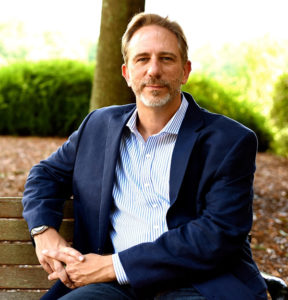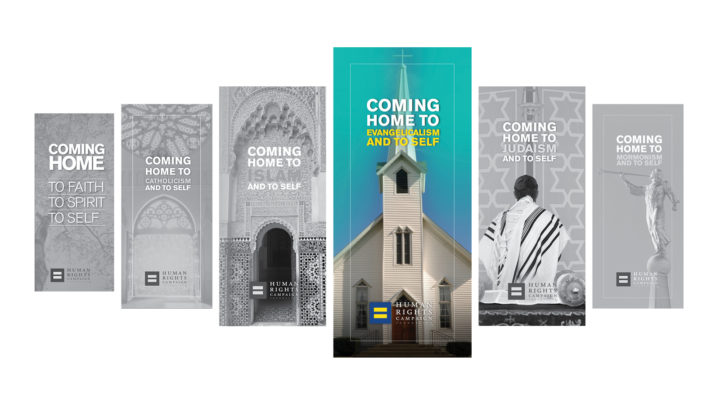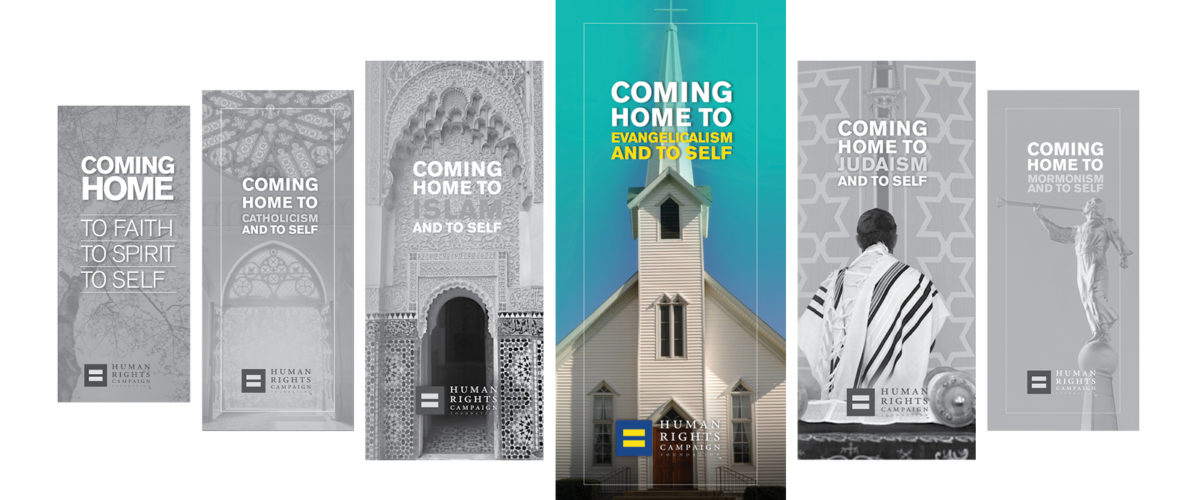A Southern Baptist Convention official denounced a new resource for LGBTQ Christians as part of “a campaign of biblical subterfuge” arguing that it’s OK for evangelicals to be gay.
In an article titled “The Human Rights Campaign releases deceptive evangelical resource,” Andrew T. Walker, director of policy studies for the SBC Ethics and Religious Liberty Commission, warned readers about the “Coming Home to Evangelicalism and to Self” pamphlet introduced July 12.

Andrew Walker
The resource, sixth in a series of faith-specific “coming home” guides released by the HRC Foundation, was released in conjunction with this year’s Wild Goose Festival, a four-day, outdoor music festival for progressive Christians held in western North Carolina.
Contributors to the pamphlet include David Gushee, a Mercer University ethicist who described his evolving views about the morality of same-sex relationships in a 2014 book titled Changing Our Mind.
Walker, who recently earned a Ph.D. in Christian ethics from Southern Baptist Theological Seminary, characterized Gushee and others mentioned in the pamphlet “as vanguards of a new kind of Christianity, a Christianity that is modern, enlightened, and attuned to the complex world of sexual identity.”
“Observers should understand that the work of these individuals is centered, almost exclusively, on getting evangelicals to abandon biblical authority and capitulate to the sexual revolution,” he warned. “For this reason, they should be ignored and regarded as false teachers.”
In the HRC pamphlet, Gushee described feeling shunned by the evangelical community after changing his mind to argue for full acceptance of LGBTQ Christians in the church.
“I was seen as having abandoned the true faith,” Gushee said. “I experienced all kinds of angry diatribes, cancellations, various forms of rejection. I’m now occasionally invited to engage in conversations about LGBTQ inclusion but otherwise doors are closed to me.”
Gushee, who taught at Southern Seminary and a Southern Baptist college before moving to Cooperative Baptist Fellowship-affiliated Mercer in 2007, said core tenets of his Baptist upbringing played a role in his change of mind.

David Gushee
“As a Baptist I have certain convictions about what it means to be church,” Gushee said. “Among them is the belief that every member matters and that everybody is of equal worth and status. There can be no second-class Christians. There is no first or second class at the communion table.”
Another contributor, Brandan Robertson, described “an invisible hierarchy” of power brokers that control much of the teaching in evangelical circles but said he finds hope in the flexibility of evangelical structures.
“It’s a lot easier for churches to leave the movement, to leave the Southern Baptist Convention, for example,” Robertson said. “Over the last three years, hundreds of small churches have left the network or affiliation they belong to. They continue in that autonomous tradition and they choose to affirm LGBTQ people.”
Contributor Matthew Vines, founder of The Reformation Project and author of God and the Gay Christian, said a lot of conservative Christians are unaware of negative impact of the church’s non-affirming teaching.
“They’ll approach Scripture with a simple question, ‘What does the Bible say and is it positive or negative?’ but that’s not a very thoughtful question to be asking,” Vines said.
“We should ask instead, ‘What do the Bible’s stories have to do with LGBTQ people and their relationships?’” he continued.
“Referencing the story of Sodom and Gomorrah, many biblical scholars now hold that a careful reading of Genesis in its historical context offers no solid basis to conclude that the destruction of Sodom and Gomorrah had anything to do with LGBTQ people and their relationships,” Vines explained. “Instead, the text is about neglecting to show hospitality to strangers.”
Walker said the so-called evangelicals profiled in the Coming Home pamphlet are “in no sense evangelical, and the Human Rights Campaign is being deceptive to communicate otherwise.”
“The version of evangelicalism presented in this resource is a revisionist account more akin to mainline Protestantism, and in that sense, represents no kind of Christianity at all.”
“The version of evangelicalism presented in this resource is a revisionist account more akin to mainline Protestantism, and in that sense, represents no kind of Christianity at all,” Walker wrote. “The resource is little more than a grievance manual wherein progressive voices exalt personal testimony over obedience to Scripture at the expense of the clear witness of Scripture and over two thousand years of unambiguous church teaching.”
Walker accused the HRC, which bills itself as “America’s largest civil rights organization working to achieve lesbian, gay, bisexual, transgender and queer equality,” of “attempting to poach evangelicals” by seeking to convince them of the error of their ways.
He said efforts like this are why the Southern Baptist Convention’s moral concerns agency partnered with the Council on Biblical Manhood and Womanhood last year to release the Nashville Statement, a manifesto that not only condemns homosexual acts but says Christians who experience feelings of same-sex attraction should not self-identify as gay.
Contacted by e-mail, Gushee did not seem overly concerned by Walker’s critique.
“On the contrary, my work on LGBTQ issues is centered on obeying Christ’s command to love my neighbors — all of them,” Gushee responded. “I am glad that it is Christ rather than anyone else to whom all will give account at the end of life’s journey.”


